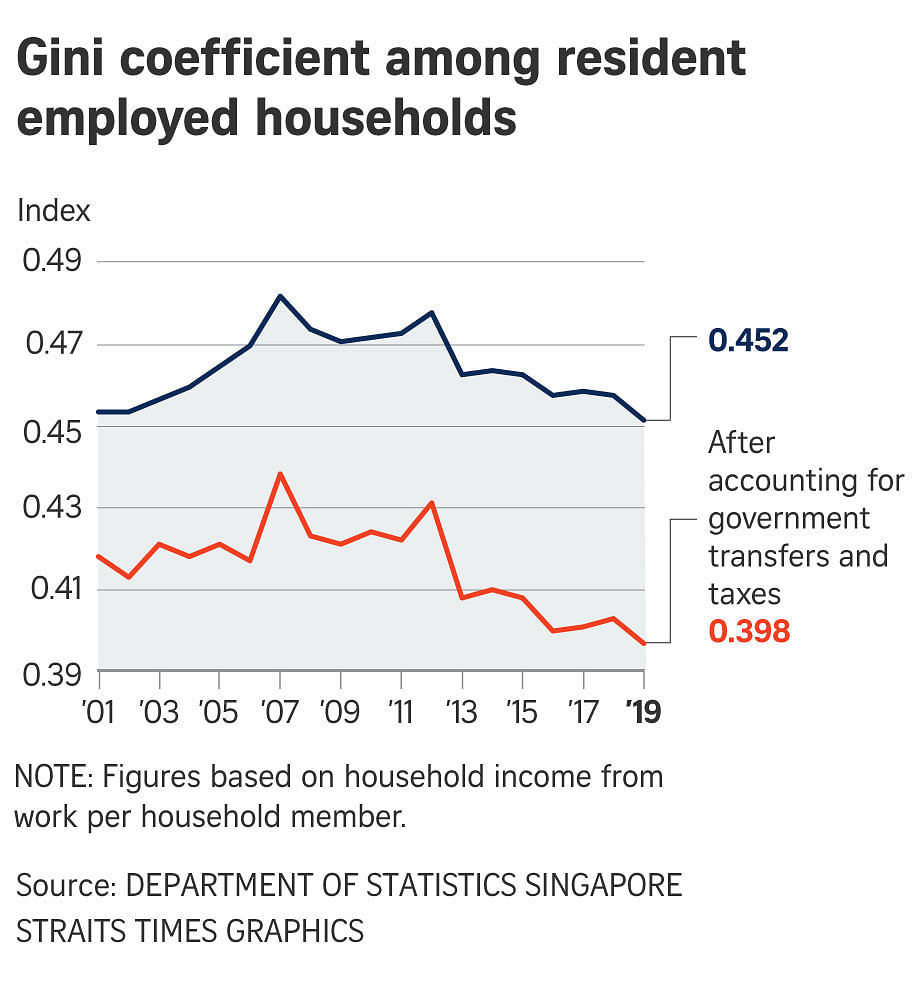SINGAPORE - Income inequality here tapered to its narrowest in almost two decades, after income for the bulk of households rose by up to 5.6 per cent while the top 10 per cent saw their income grow just 0.4 per cent.
The Gini coefficient - which measures income inequality from 0 to 1, with 0 being most equal - fell to 0.452 last year, lower than 0.458 in 2018 and the lowest since 2001, according to the Department of Statistics' Key Household Income Trends report released on Thursday (Feb 20).
Government transfers and taxes reduced the Gini coefficient further to 0.398.
The drop in the Gini coefficient last year comes as Singapore government leaders pledged to make tackling social inequality a key priority. Steps to boost low-wage workers' incomes have picked up speed, with the National Wages Council recommending higher wage thresholds for a broader range of workers.
Conversely, the weakening economy last year appeared to have hit administrative and managerial workers - who form the bulk of the top earners - especially hard.
At its peak, Singapore's Gini coefficient hit 0.482 in 2007. It declined gradually since, before spiking again in 2012. It hovered around 0.46 in recent years.
The report on Thursday also showed that Singapore families earned more from work per person last year.
The median monthly household income from work per household member rose by 4.8 per cent, reaching $2,925 last year. This is a 4.3 per cent increase after accounting for inflation. Household income from work includes Central Provident Fund contributions from employers but excludes income from sources such as dividends and rent. Nor does it count the income of maids.
The survey also found that households in the 1st to 90th percentile income groups saw real income growth of 3.5 to 5.6 per cent.
This is much higher than the 0.4 per cent seen by households in the top 10 per cent.
Families with at least one working member - which make up 86.8 per cent of households here - saw median monthly household income from work grow to $9,425 last year, or 1 per cent in real terms, compared to 2.6 per cent in real terms in 2018.
The report also noted that resident households, including those with no working person, received $4,682 for each family member on average from various government schemes last year.
Those living in one and two-room Housing Board flats received $10,548 per household member on average - more than double the transfers received by resident households staying in other types of housing.


